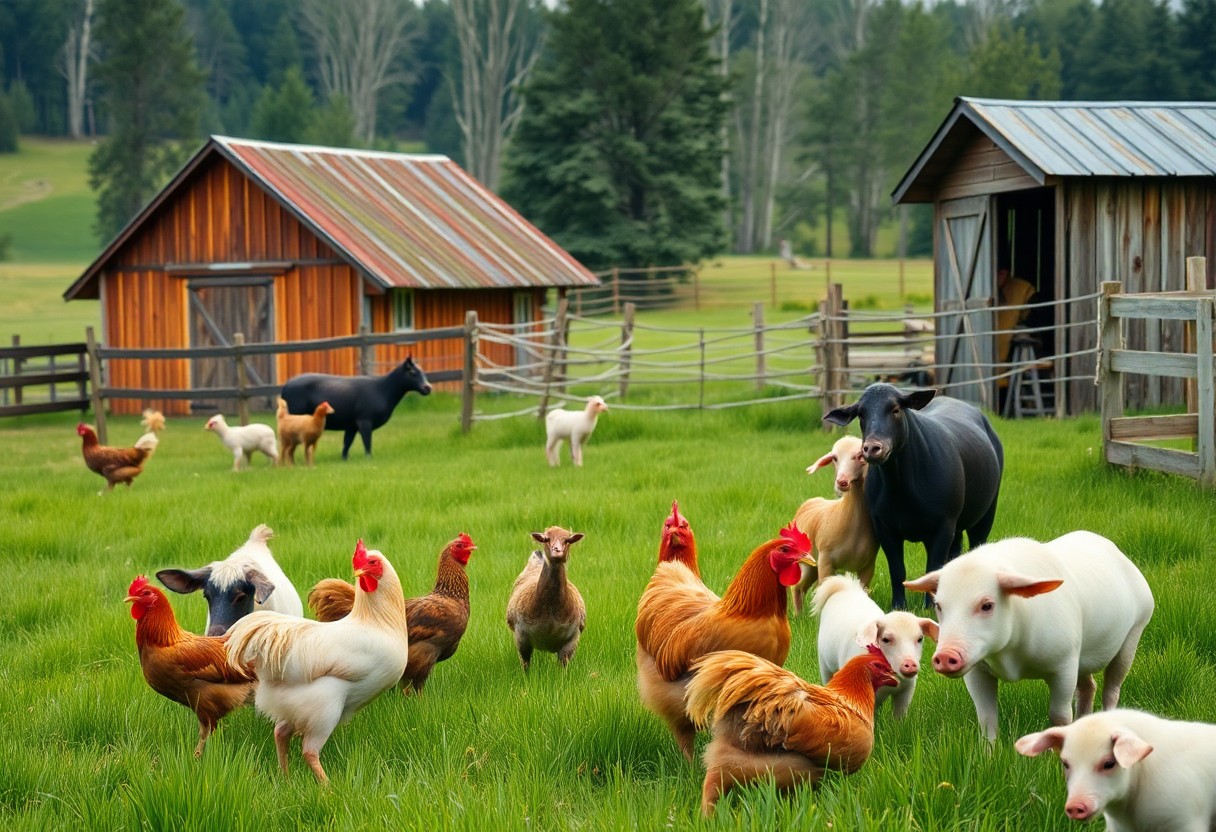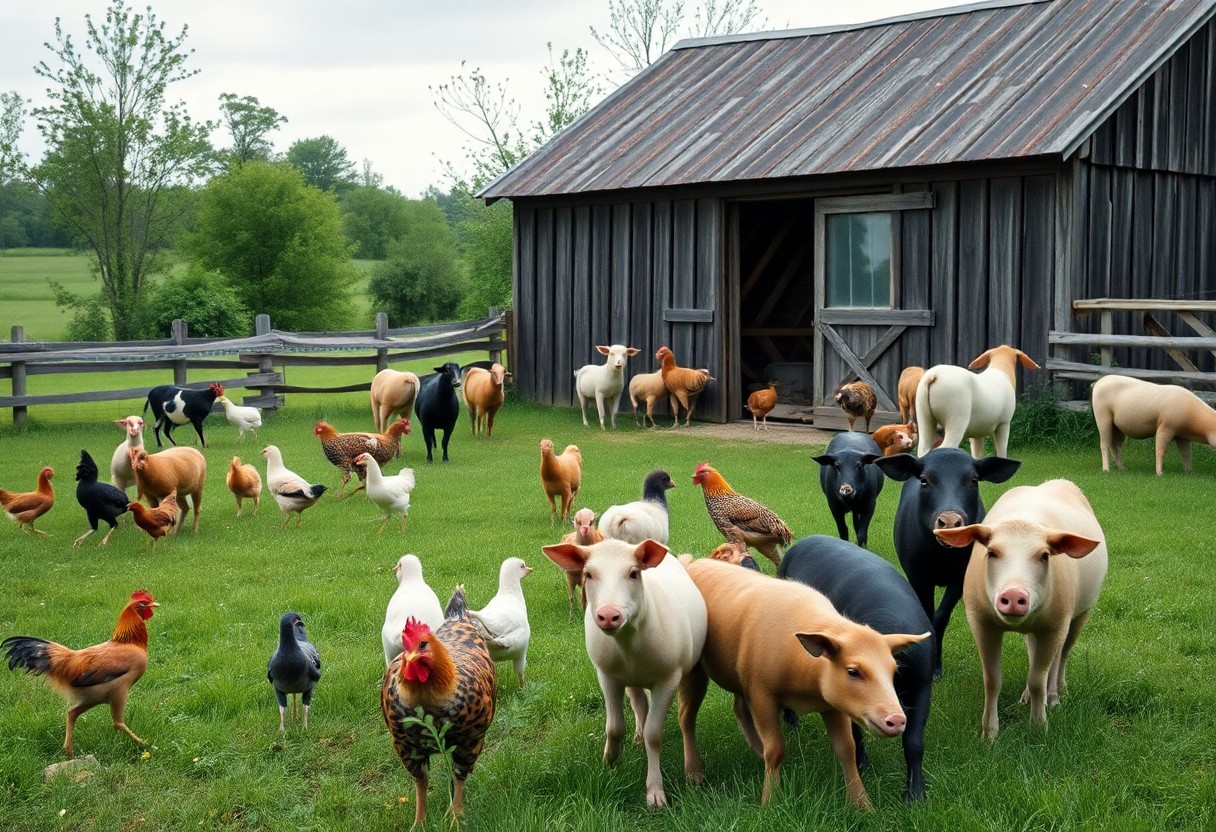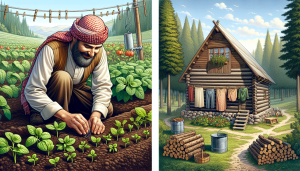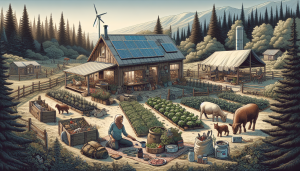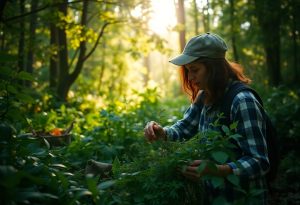You can enhance your self-reliance by learning to raise livestock and poultry, which is imperative for achieving sustainability off the grid. This guide will equip you with the knowledge to choose the right breeds, understand their care requirements, and manage their health, ultimately leading to natural food sources. From nutritious eggs to meat production, each aspect of raising animals can contribute significantly to your self-sufficient lifestyle. Additionally, mastering these skills offers a sense of empowerment and connection to nature that is invaluable in today’s world.
Key Takeaways:
- Diverse Livestock Choices: Selecting the right mix of animals, such as chickens, goats, and pigs, supports various needs for food, milk, and natural fertilizer.
- Animal Care and Management: Understanding proper care techniques, including feeding, housing, and health checks, is crucial for sustainability and productivity.
- Resource Utilization: Leverage available land and materials efficiently to create a self-sustaining environment that minimizes reliance on external resources.
Understanding Off-Grid Living
Before venturing into the world of raising livestock and poultry, it’s vital to grasp the core concept of Self-Reliance off-grid living. This lifestyle prioritizes self-sufficiency, enabling you to break free from conventional utility services and reliance on external resources. By adopting Self-Reliance off-grid practices, you can create a sustainable ecosystem within your property, leading to greater freedom and resilience against societal fluctuations.
Principles of Self-Reliance
Living Self-Reliance off-grid means embracing principles of self-reliance, where you focus on gaining vital skills for sustainability. This involves cultivating your own food, utilizing renewable energy sources, and managing resources efficiently. By honing these skills, you prepare yourself to thrive independently, ensuring that your homestead remains productive and resilient.
Benefits of Sustainable Livestock Raising
Across the globe, sustainable livestock raising offers numerous advantages that can enhance your Self-Reliance off-grid lifestyle. By implementing ethical practices in livestock management, you can ensure healthier and more productive animals while reducing your environmental impact. This approach not only improves your food security but also enriches your connection to the land.
Considering the benefits, raising livestock sustainably can significantly contribute to your food independence. It provides you with nutritious and organic meat, eggs, or dairy products, which are often healthier options compared to store-bought alternatives. Moreover, it fosters a symbiotic relationship with your land, as livestock can aid in soil fertility and pest management, creating a balanced ecosystem. Additionally, sustainable practices can lead to long-term cost savings, as your reliance on external food sources diminishes. By adopting this responsible approach, you not only ensure your well-being but also promote a healthier planet.
Selecting the Right Livestock
There’s a lot to consider when selecting the right livestock for your Self-Reliance off-grid homestead. The choice impacts not only the sustainability of your living environment but also the overall productivity and enjoyment of your farming experience. You should assess your land, available resources, and your personal goals for food production and companionship.
Types of Animals for Off-Grid Living
Across various environments, you’ll find an array of suitable animals for Self-Reliance off-grid living. The kinds of livestock you choose can offer meat, dairy, eggs, or fiber. Here’s a handy comparison of different options:
| Animal Type | Main Focus |
|---|---|
| Chickens | Eggs and meat |
| Goats | Dairy and meat |
| Cows | Dairy and beef |
| Pigs | Meat |
| Sheep | Meat and wool |
Thou can choose the types that resonate with your needs and situation.
Factors to Consider in Selection
At the heart of your selection process should be an evaluation of several significant factors. Consider aspects such as space, climate, diet, and temperament of the animals you wish to raise. These criteria will help effectively determine what species suits your Self-Reliance off-grid objective.
- Space: Ensure adequate room for movement.
- Climate: Choose breeds suited for your weather conditions.
- Diet: Assess what resources you have for feeding.
- Temperament: Consider how comfortable you are handling them.
Thou should prioritize these factors to ensure a successful experience.
For instance, you might prefer pet-like goats for companionship, but they require a good amount of space to roam and grace your surroundings. Assess how much land you have before committing to larger breeds like cows or pigs, as they need significant room and resources. Additionally, think about the climate; some animals thrive in hot weather while others tolerate cold better. Whether you seek meat, milk, or fiber, map out your intentions for an enriching Self-Reliance off-grid life.
- Companionship: Some animals provide emotional bonds.
- Productivity: Select based on your primary goal.
- Maintenance: Different breeds come with varying care needs.
- Cohabitation: Can multiple species thrive together?
Thou must explore these details to make a sound decision.
Basic Husbandry Skills
After establishing your off-grid homestead, you’ll need to acquire basic husbandry skills to effectively raise livestock and poultry. This involves understanding the requirements of different species, mastering feeding schedules, health monitoring, and creating suitable housing. By becoming familiar with these practices, you’ll set the foundation for a sustainable and productive farm that can fulfill your self-reliance goals.
Feeding and Nutrition
About the feeding and nutrition of your animals, it is vital to provide a well-balanced diet tailored to their specific needs. Monitor their food intake to ensure they receive the necessary vitamins and minerals to promote growth and productivity. Offering a variety of feed options will not only help meet their nutritional needs but also contribute to their overall health and well-being.
Health Care and Management Practices
Care for your livestock and poultry involves routine health checks and maintaining a clean living environment. Regular vaccinations, parasite control, and observing behavior are fundamental practices to prevent illness. By establishing a solid health care routine, you can ensure your animals remain thriving and productive.
Also, it’s important to watch for signs of common ailments such as respiratory issues or digestive disorders, which can rapidly affect your herd or flock. Implementing a consistent schedule for veterinary visits, vaccinations, and health assessments is vital for early detection of problems. Prioritizing good hygiene, including frequent cleaning of housing and equipment, will reduce the risk of disease. Ultimately, your attentiveness and proactive management will lead to healthier livestock, ensuring a successful Self-Reliance off-grid operation.
Poultry Raising Techniques
Now that you’ve decided to raise poultry, understanding the best techniques will empower you to create a thriving environment. From selecting the right breeds to ensuring proper care, incorporating these practices ensures your birds remain healthy and productive. You will foster a sustainable lifestyle while enjoying fresh eggs and meat right from your backyard.
Housing and Environmental Needs
Among the key factors to successful poultry raising is providing suitable housing and a healthy environment. Your birds require a well-ventilated coop that protects them from harsh weather, predators, and diseases. Ensure that their living area is spacious enough to enable movement while also maintaining cleanliness to promote their overall well-being.
Egg Production and Meat Harvesting
Needs for optimal egg production and efficient meat harvesting revolve around proper nutrition, breed selection, and careful handling. Regularly assess the needs of your flock to maximize output without compromising the health of your birds.
Hence, focusing on nutritional balance is important for enhancing both egg production and meat quality. Choose specialized feeds suited for layers or broilers to ensure their energy, protein, and mineral needs are met. Pay close attention to your hens’ laying cycles; collecting eggs daily minimizes spoilage. For meat birds, maintain a harvesting schedule that allows them to reach optimal weights while ensuring they are humanely processed. Your dedication will directly reflect in the health of your flock and the quality of the products you enjoy.
Breeding Livestock for Sustainability
All successful Self-Reliance off-grid homesteaders understand the importance of breeding livestock for sustainability. Through careful selection and breeding practices, you can enhance your herd’s resilience and productivity, ensuring your off-grid lifestyle remains sustainable. When managed properly, a well-bred livestock population can provide you with a consistent supply of food, materials, and companionship, all while contributing positively to your self-reliant ecosystem.
Genetic Selection and Breeding Practices
Before initiateing on your breeding journey, it is vital to focus on genetic selection to improve traits such as disease resistance, growth rate, and adaptability. By carefully studying the lineage of your livestock and selecting breeding pairs with desirable qualities, you can enhance your stock’s overall performance. Keep detailed records of traits to make informed decisions on which animals to breed.
Maintaining a Sustainable Breeding Program
After establishing your initial breeding pairs, you need to implement strategies for maintaining a sustainable breeding program. Regularly assess the health and productivity of your livestock, rotating breeding stock to prevent inbreeding. Incorporate new genetics into your program as necessary to ensure ongoing diversity and vigor in your herd or flock.
Sustainable breeding practices require ongoing evaluation and adjustment to stay aligned with your goals. You should monitor the health and productivity of your animals, implementing regular health checks and record-keeping to track progress. Selecting new breeding stock from outside sources can combat inbreeding risks, while diversifying genetics will enhance the robustness of your livestock. Regular training on animal husbandry can empower you to make informed choices, ultimately contributing to your off-grid success.
Integrating Livestock into a Self-Sufficient System
Despite the challenges that come with raising livestock, integrating them into your self-sufficient system can yield numerous benefits. By carefully planning your livestock operations, you can enhance your overall agricultural output, improve soil fertility, and create a more balanced ecosystem. Each type of animal contributes uniquely, from soil aeration to pest control, making them vital to your sustainable living strategy.
Companion Planting and Permaculture Principles
Around your homestead, implementing companion planting and permaculture principles can significantly boost the productivity of your livestock integration. By strategically placing plants that benefit one another, you can create an environment where both flora and fauna thrive. This approach not only maximizes the use of space but also contributes to the health of your overall ecosystem.
Utilizing Animal Manure and Byproducts
Utilizing animal manure and byproducts effectively can transform waste into a valuable resource for your self-sufficient system. This renewable source of fertilizer is packed with vital nutrients, enriching your soil and promoting healthy plant growth. By composting manure and surplus organic matter, you create a sustainable loop that supports both your crops and livestock, fostering a resilient agricultural environment.
Principles of utilizing animal manure and byproducts involve proper management techniques to ensure safety and efficacy. By composting manure, you can reduce pathogens and odors, making it a safe addition to your garden. Ensure that you apply it at the right times to maximize nutrient uptake by your plants. Moreover, consider the positive impact of rotational grazing, where livestock can naturally fertilize and aerate the soil, leading to healthier pastures. Careful management will protect your plants from nutrient burn while enhancing soil health, creating a sustainable cycle within your homestead.
Summing up
Considering all points, mastering self-reliance skills by raising livestock and poultry is an crucial step toward achieving off-grid sustainability. By understanding their care and management, you can provide nutritious food, enhance your independence, and contribute to a resilient lifestyle. Cultivating this knowledge empowers you to navigate challenges and build a sustainable living environment, ensuring that you are better prepared for various situations. Embrace these practices, and you will cultivate not just a sustainable source of nourishment but also a deeper connection with your resources and environment.
FAQ
Q: What are self-reliance skills in the context of raising livestock and poultry?
A: Self-reliance skills refer to the abilities and knowledge that enable individuals or families to raise livestock and poultry independently, enhancing their sustainability and self-sufficiency. This includes understanding animal husbandry practices, breeding, feeding, health care, and habitat management, which allow for producing meat, eggs, and other animal products without reliance on commercial sources.
Q: What types of livestock and poultry are best suited for off-grid living?
A: For off-grid living, smaller breeds of livestock and hardy poultry generally perform well. Goats and sheep are excellent choices for sustainable meat and milk production, while chickens and ducks are ideal for eggs and pest control. Additionally, rabbits can provide meat and are space-efficient. The selection will depend on the available resources, climate, and personal preferences.
Q: How do I ensure the health and well-being of my livestock and poultry?
A: Ensuring the health of your animals involves a combination of good nutrition, proper housing, and regular health checks. Providing a balanced diet is crucial, along with clean water and adequate space for movement. Familiarizing yourself with common illnesses and preventative care measures will also contribute to their overall well-being. It’s also beneficial to develop a relationship with a veterinarian familiar with livestock and poultry.
Q: What are some common challenges faced when raising animals off-grid?
A: Raising livestock and poultry off-grid can present challenges such as limited access to veterinary services, the need for sustainable feed sources, and ensuring proper shelter against adverse weather conditions. Additionally, managing predator threats and maintaining biosecurity to prevent disease outbreaks are important considerations. Developing a deep understanding of animal behavior can help mitigate these challenges.
Q: How can raising livestock and poultry contribute to off-grid sustainability?
A: Raising livestock and poultry enhances off-grid sustainability by providing a reliable source of nutrition through meat, eggs, and dairy products while reducing dependence on external food systems. It also promotes efficient waste management through composting manures, which can enrich soil for gardening. Engaging in these practices fosters a closed-loop system that minimizes resource waste and encourages self-sufficiency.

